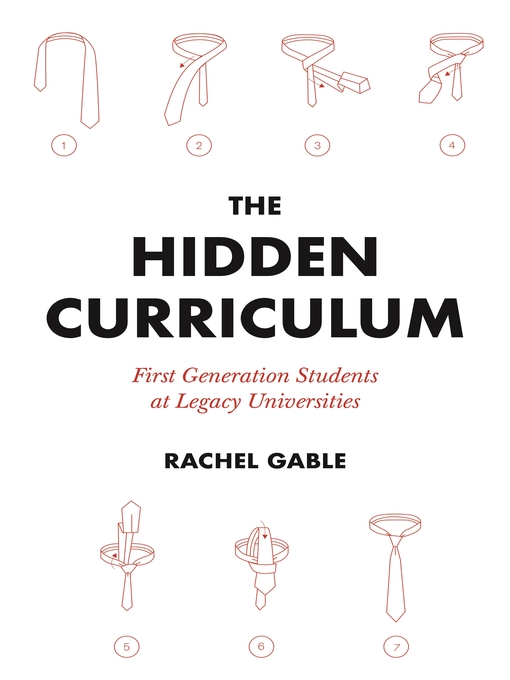
The Hidden Curriculum
First Generation Students at Legacy Universities
کتاب های مرتبط
- اطلاعات
- نقد و بررسی
- دیدگاه کاربران
نقد و بررسی

December 1, 2020
An exploration of the differences between the experiences of first-generation and continuing-generation college students at two top-level universities. For first-generation students--i.e., those whose parents did not graduate from a four-year college--the "unspoken rules" and "tacit expectations" at highly selective universities can seem surprising or mysterious. For those with family roots at these institutions, expectations are clearly understood, which gives these students an advantage. This is the "hidden curriculum" of the title: the innate understanding of how best to make use of a professor's office hours, for example, or of how to feel confident participating in class discussions. Gable, the "director of institutional effectiveness" at Virginia Commonwealth, bases her book on a study of 91 first-generation and 35 continuing-generation students at Georgetown and Harvard. She chronicles their academic challenges and successes as well as their social experiences with new friends and extracurricular activities, taking in such variables as prior connections and parents' relations to the school. Based on her findings, Gable offers policy suggestions to college administrators for effective outreach to these groups. The book is clearly geared toward academia. Based on the author's dissertation, the text contains detailed analyses of statistics and scholarly methods, and Gable supports her conclusions with meticulous footnotes. However, the author also lets the students tell their stories, including lengthy intact quotes from many of her interviews. Therefore, it's fairly easy to follow the students' narratives in the text while leaving the "scholarly conversation" in the footnotes for background. Many of the study's conclusions are eye-opening. For example, first-generation students who identified as "less prepared" for their college experiences often "expressed concern" that certain majors (e.g., in the humanities) would lead to less lucrative careers--they didn't want to " 'waste' the value of an elite education." Concrete suggestions for university leaders on how to best serve students from widely disparate backgrounds. (appendix, bibliography)
COPYRIGHT(2020) Kirkus Reviews, ALL RIGHTS RESERVED.

April 2, 2021
Attending an elite university presents difficulties for many, especially first-generation students, or those who are the first in their family to attend a four-year college. In addition to academic expectations, there are social norms, traditions, and values--known as the "hidden curriculum"--to navigate. From 2012 to 2016, Gable (director, institutional effectiveness, Virginia Commonwealth Univ.) followed 91 first-generation students and 35 continuing students (defined as those who have at least one parent with a bachelor's degree) at Harvard and Georgetown to learn firsthand what first-generation students want and what institutional supports they need to succeed academically and personally. Using extensive qualitative research and interviews, the book offers concrete advice for college administrators on improving the transition to college, augmenting academic experiences, and strengthening social experiences. Some of the suggestions can be incorporated efficiently into existing programs (for instance, improving signage to make campuses easier to navigate for newcomers and guests), while others may be more costly or require more strategic consideration, such as hiring more university staff from underrepresented populations. Harvard and Georgetown took Gable's study seriously and adopted some of the measures that her book proposes. The book focuses on these two elite Eastern colleges, but its suggestions are broad enough to apply to all universities. VERDICT Gable's suggestions are well written and thoughtfully conveyed; university administrators and others interested in higher education will find much to consider.--Jacqueline Snider, Toronto
Copyright 2021 Library Journal, LLC Used with permission.

























دیدگاه کاربران